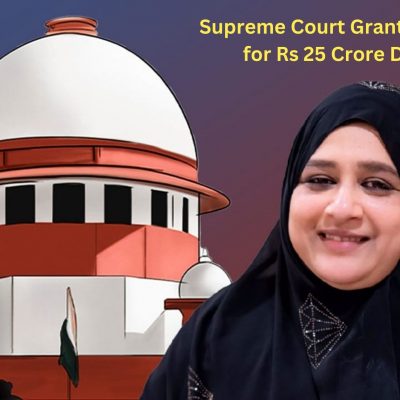The recent Lok Sabha elections marked a significant milestone in the history of Indian politics, with 74 women emerging victorious and taking their seats in Parliament. This comes after the passage of a landmark bill granting a 33% reservation in legisl. This historic progression has been met with acclaim, and people eager to see the potential changes that this influx of female representatives will bring about. Dr. Nowhera Shaikh, a prominent figure in the movement for women’s rights, expressed her heartfelt gratitude to all the party leaders who supported women candidates in these elections. She also called for future increases to this figure. The Prime Minister, Narendra Modi, specifically praised the BJP government for proposing the Women’s Bill and creating opportunities for women.
In this blog post, we will delve into the myriad implications of this significant step, understand the history behind the Women’s Reservation Bill, explore the potential impacts this may have on Indian politics and society, and consider the future prospects for women in Indian legislatures.
A Brief History of the Women’s Reservation Bill
The Women’s Reservation Bill, also known as the Constitution (108th Amendment) Bill, has been a topic of debate and discussion for decades. The bill aims to reserve 33% of all seats in the Lok Sabha and in all state legislative assemblies for women. The journey of the bill has been long and arduous, reflecting the struggle women have faced in their fight for equal representation in politics.
Early Efforts and Advocacy
The demand for women’s reservation in legislatures can be traced back to the early 1990s. Women’s groups and various civil society organizations have been advocating for increased political representation for women. The idea was to ensure that women, who constitute nearly half of the population, have a significant say in the decision-making processes that affect their lives.
Introduction and Stalling
The bill was first introduced in the Lok Sabha in 1996, but it faced stiff opposition from various political parties and leaders. Concerns were raised about the impact of reservation on the composition of the Parliament and state assemblies, and there were apprehensions about the possibility of tokenism. The bill was introduced and reintroduced multiple times, but it could never garner the necessary support to become law.
A Landmark Achievement
After years of persistent efforts, the bill was finally passed by the Parliament, marking a historic victory for women’s rights in India. The passage of the bill was a testament to the collective will of the leaders who recognized the importance of women’s representation in legislatures. It was a momentous occasion, celebrated by women’s groups, activists, and citizens across the country.
The Significance of 74 Women Winning Lok Sabha Elections
The recent Lok Sabha elections, which saw 74 women taking their seats in Parliament, are significant for several reasons. This achievement is not just about numbers; it represents a shift in the socio-political landscape of the country. Let’s delve into the various aspects that make this milestone noteworthy.
Breaking the Glass Ceiling
The success of these 74 women is a powerful statement against the deeply entrenched patriarchal norms that have long dictated the political arena. Historically, politics has been a male-dominated field, with women often finding it challenging to break through the glass ceiling. The victory of these women is indicative of changing perceptions and an increasing acceptance of women in positions of power.
Diverse Representation
The women who have won seats in the Lok Sabha come from diverse backgrounds, representing different regions, communities, and professional experiences. This diversity is crucial as it ensures that the voices of various segments of society are heard in the legislative process. It is a step towards a more inclusive and representative democracy.
A Step Towards Gender Equality
The election of 74 women to the Lok Sabha is a significant step towards achieving gender equality in the political sphere. It is a recognition of the capabilities and potential of women as leaders and policymakers. The presence of more women in Parliament can lead to the formulation of policies and laws that are more sensitive to the needs and concerns of women.
Inspiration for Future Generations
The success of these women serves as an inspiration for future generations. It sends a powerful message to young girls and women across the country that they too can aspire to be leaders and make a difference in their communities. It empowers them to dream big and work towards achieving their goals.
Dr. Nowhera Shaikh’s Gratitude and Vision for the Future
Dr. Nowhera Shaikh, a well-known advocate for women’s rights and empowerment, expressed her gratitude to all the party leaders who supported women candidates in the recent elections. She emphasized the significance of this achievement and called for further efforts to increase the representation of women in legislatures.
Appreciating the Support
In her address, Dr. Nowhera Shaikh acknowledged the role played by party leaders in ensuring the success of women candidates. She highlighted the importance of political will and support in creating opportunities for women. She expressed her hope that this support would continue in the future, leading to even greater representation of women in politics.
Calling for Increased Representation
While the election of 74 women to the Lok Sabha is a significant achievement, Dr. Shaikh called for further increases in this number. She stressed the need for continued efforts to bridge the gender gap in political representation. She believes that increasing the representation of women in legislatures is essential for creating a more equitable and just society.
Vision for Gender-Responsive Governance
Dr. Shaikh envisions a future where women’s voices are integral to the governance process. She advocates for gender-responsive governance, where policies and laws are designed to address the specific needs and concerns of women. She believes that increased representation of women in legislatures is a crucial step towards achieving this vision.
Prime Minister Modi’s Praise for the BJP Government
Prime Minister Narendra Modi, in his address, specifically praised the BJP government for proposing and passing the Women’s Reservation Bill. He highlighted the commitment of his government to creating opportunities for women and ensuring their participation in the political process.
Acknowledging the Historical Significance
Prime Minister Modi acknowledged the historical significance of the Women’s Reservation Bill and the recent elections. He emphasized that the passage of the bill was a major step towards achieving gender equality in politics. He expressed his pride in being part of a government that took this bold step.
Commitment to Women’s Empowerment
In his address, Prime Minister Modi reiterated his government’s commitment to women’s empowerment. He highlighted various initiatives and programs launched by his government to support women in different spheres of life. He assured that the government would continue to work towards creating an enabling environment for women to succeed.
Looking Ahead
Prime Minister Modi expressed optimism about the future and called for continued efforts to increase the representation of women in politics. He emphasized the need for collective action and collaboration to achieve the goal of gender equality. He urged all stakeholders to work together to create a more inclusive and just society.
Potential Impacts of Increased Female Representation
The increased representation of women in the Lok Sabha has the potential to bring about significant changes in Indian politics and society. Let’s explore some of the potential impacts of this milestone achievement.
Policy Changes and Focus Areas
With more women in Parliament, there is likely to be a shift in policy priorities. Issues that affect women, such as healthcare, education, and gender-based violence, may receive more attention. Women’s perspectives can contribute to more comprehensive and inclusive policymaking, addressing the needs and concerns of a broader segment of society.
Enhanced Social Awareness
The presence of more women in the Lok Sabha can lead to increased social awareness about gender equality and women’s rights. It can challenge societal norms and stereotypes that limit women’s participation in public life. As women leaders take on prominent roles, they can serve as role models and inspire positive change in societal attitudes.
Economic Empowerment
Political representation can also have a positive impact on women’s economic empowerment. Women leaders can advocate for policies that promote women’s participation in the workforce, support women’s entrepreneurship, and address issues such as the gender pay gap. Economic empowerment of women is crucial for overall economic growth and development.
Strengthening Democracy
Increased representation of women can strengthen democracy by ensuring that diverse voices are heard in the legislative process. A more representative and inclusive Parliament can lead to better decision-making and governance. It can enhance the legitimacy of the democratic process and build public trust in the political system.
Overcoming Challenges and Moving Forward
While the recent achievements in women’s representation are commendable, there are still challenges that need to be addressed. It is important to recognize these challenges and work towards creating a more conducive environment for women’s participation in politics.
Addressing Structural Barriers
Women often face structural barriers that hinder their participation in politics. These barriers include lack of access to resources, social norms, and discriminatory practices. Efforts need to be made to remove these barriers and create a level playing field for women candidates. This can include providing financial support, mentorship, and capacity-building programs for women aspiring to enter politics.
Ensuring Meaningful Participation
It is important to ensure that women’s participation in politics is meaningful and not just symbolic. Women representatives should be given equal opportunities to contribute to the legislative process and hold leadership positions. Political parties should actively involve women in decision-making roles and create a supportive environment for their growth.
Encouraging Civic Engagement
Civic engagement and activism play a crucial role in promoting women’s representation in politics. Grassroots movements, civil society organizations, and advocacy groups can continue to raise awareness about the importance of women’s political participation. Encouraging young women to take an active interest in politics and providing them with platforms to voice their opinions can contribute to sustained progress.
Building Alliances and Partnerships
Collaboration and partnerships are essential for achieving the goal of gender equality in politics. Political leaders, civil society organizations, and the private sector can work together to create initiatives and programs that support women’s political participation. Building alliances and networks can amplify efforts and create a stronger impact.
Conclusion: Celebrating Progress and Looking Ahead
The election of 74 women to the Lok Sabha is a historic achievement and a step towards a more inclusive and equitable political landscape. It is a moment to celebrate the progress made and acknowledge the efforts of all those who have contributed to this milestone. However, it is also a reminder that the journey towards gender equality in politics is ongoing, and there is still much work to be done.
As we celebrate this achievement, let us continue to support and advocate for increased representation of women in politics. Let us work towards creating an environment where women can thrive as leaders and policymakers. The success of these 74 women is not just their victory; it is a victory for all women and a step towards a brighter future for our society.





